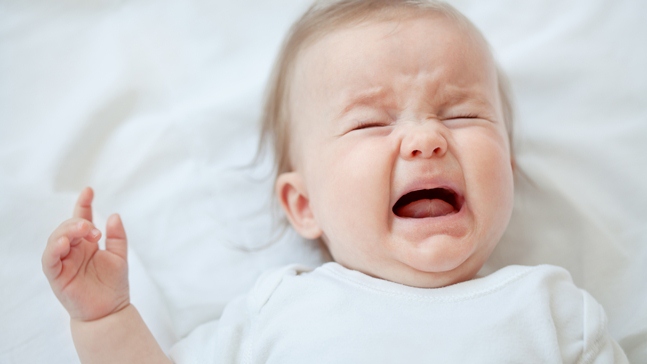Both of his mother and I can neither carry him all the time nor let him cry. What is the best solution for this problem?
Answer
In this counseling answer:
•Do your best to see the child is safe and secure but do not respond to the crying. This may feel somewhat harsh but try and remember that the child can only understand the basic message – that the crying is not working anymore and after some time she/he will stop crying.
•It is helpful to remember that any habit that you instill in your child as a baby will encourage the child to rely on that behavior. Your reaction will reinforce the given behavior.
As-salamu `alaikum brother,
Jazak Allah khairan for writing in with this question. May Allah reward you for the question because this is a problem many parents face and they often end up in a cycle of dependency that creates difficulty for both parents and the child when trying to end it.
Clearly, children of this age are not able to understand your reasoning. We forget that all they see at this age is a physical reaction and they feel an emotional response but they are not able to integrate it in a comprehensive cognitive thinking and verbal manner. For them it is as simple as: Crying = Being carried.
If they cry (level 1 noise!) and you do not respond they tend to cry louder (level 2 noise!) and again you may not respond. Then they may cry very loudly (level 3 noise!) and you may then respond because you can not deal with the noise they are making. Then the child simply learns that they need to cry at ‘level 3’ noise for you to pick them up. (Apologies for the rather basic example).
So your response to their crying is what reinforces their behavior. Therefore, if you have immediately picked up the child when she/he cries then this is what the child expects and will cry until you do so.

Similarly, if you had not responded at all – though of course that would be neglectful if done continuously and when the child was in need – the child would no longer cry when they needed to be picked up because they would get the message that Crying ≠ not being picked up.
Regarding your situation, this does not mean, however, that you need to carry the child around from now on,but you now need to break the association.
Check out this counseling video
Child psychologists are in debate about the best response. Some suggest that when you come to reversing the behavior, you will predictably find that the child will no doubt cry more and more loudly and this will cause you to pick him up out of desperation! And this will give the child the message they have to cry even louder to be picked up.
So do your best to see the child is safe and secure but do not respond to the crying. This may feel somewhat harsh but try and remember that the child can only understand the basic message – that the crying is not working anymore and after some time she/he will stop crying.
However, I can not give you a set time frame for this and you will have to suffer some noise and discomfort until the child gets the message. I realize that this is not easy and we all wish for peace and quietness; sadly babies do not share this helpful and quiet world view! So it will take some patience from you both to listen to the crying and not give in.
In brief, it is helpful to remember that any habit that you instill in your child as a baby will encourage the child to rely on that behavior. Your reaction will reinforce the given behavior.
May Allah make it easy for you all and grant you many happy moments of love, laughter and peace together.
***
Disclaimer: The conceptualization and recommendations stated in this response are very general and purely based on the limited information that was provided in the question. In no event shall AboutIslam, it’s volunteers, writers, scholars, counselors, or employees be held liable for any direct, indirect, exemplary, punitive, consequential or other damages whatsoever that may arise through your decision or action in the use of the services which our website provides.
Read more:
